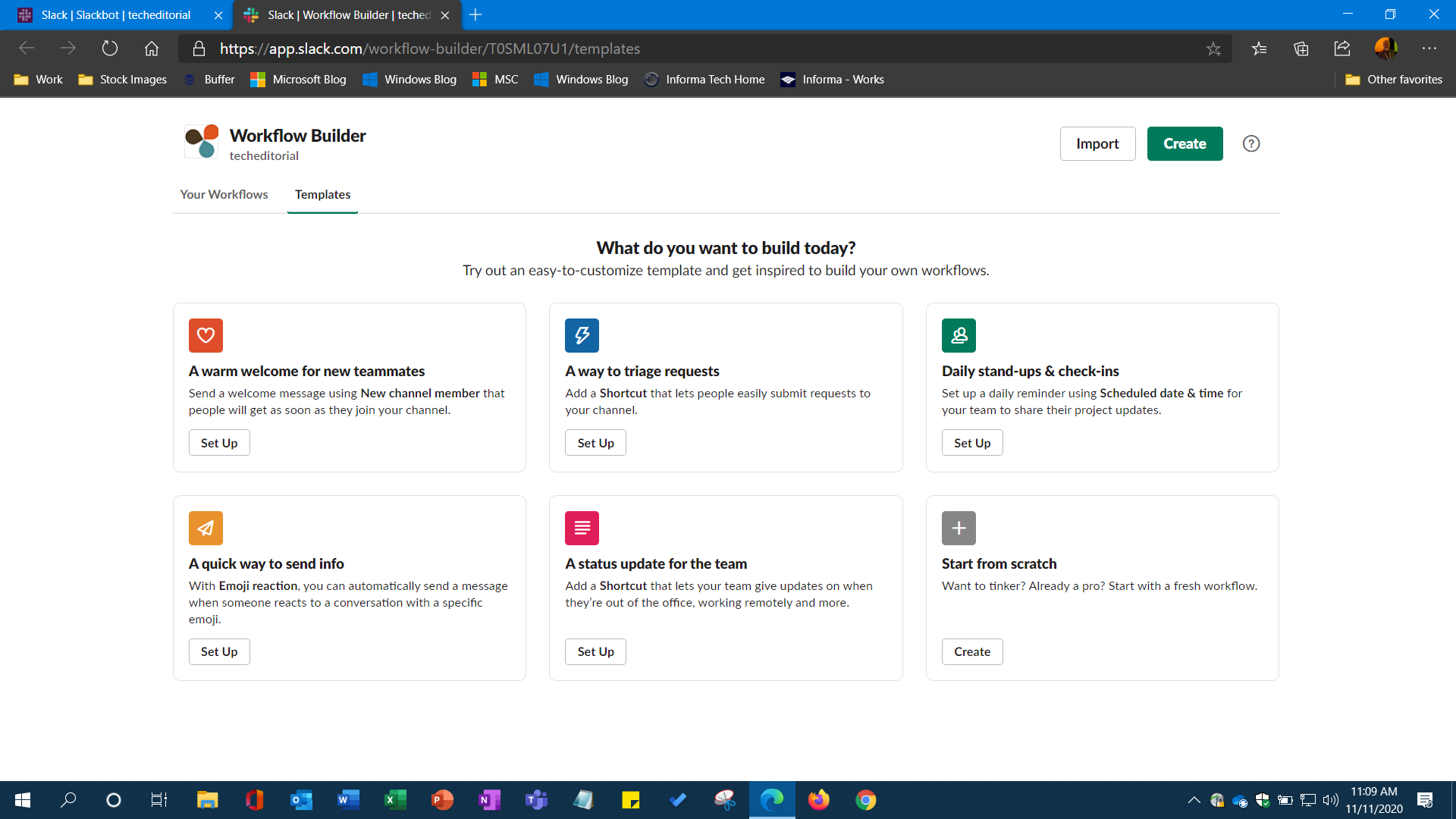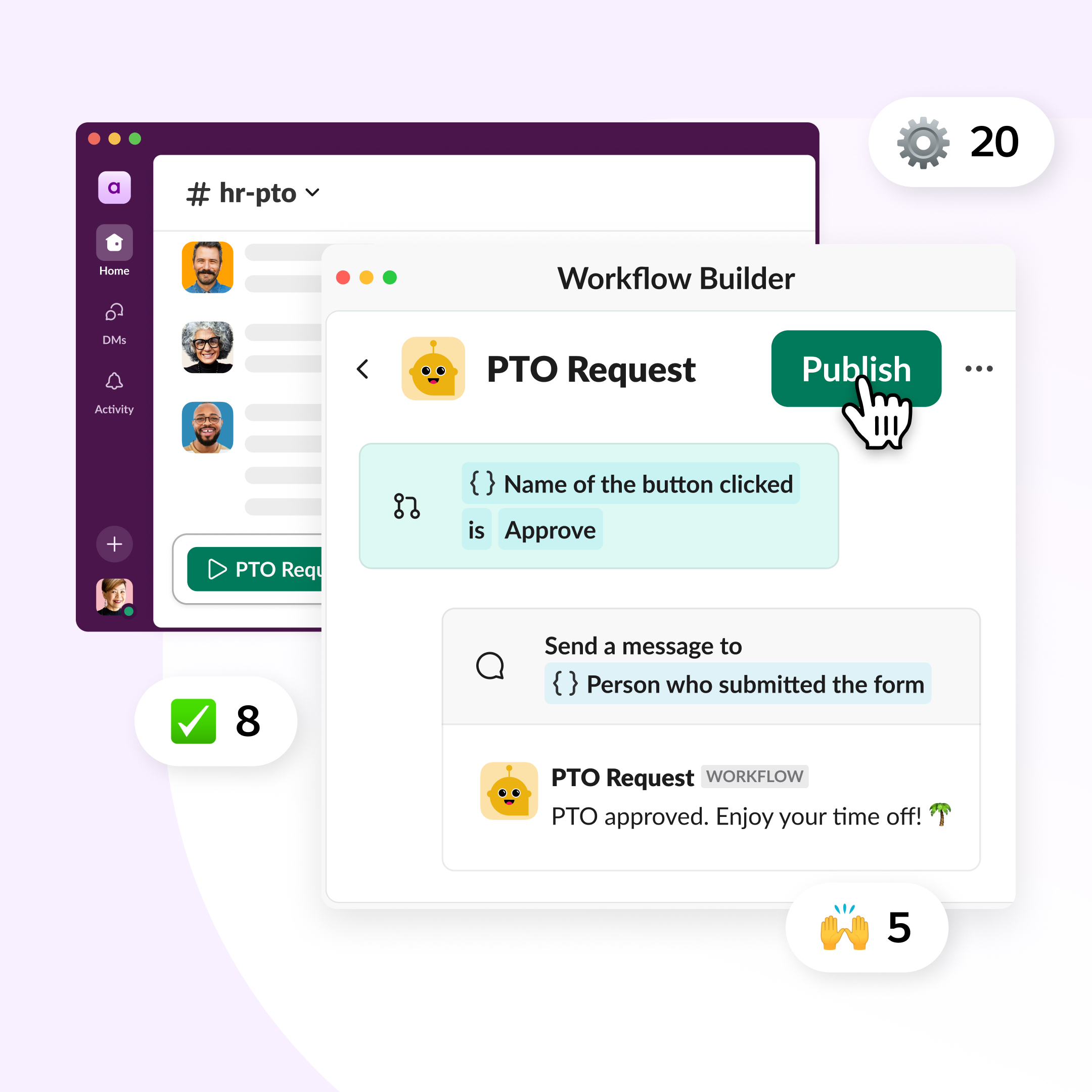Slack's built-in automation tool for handling repetitive crap without writing code. It's basically a way to make computers do the boring stuff so you don't have to.

Core Capabilities

Works with simple trigger-action setup: something happens (emoji reaction, someone joins channel, whatever), workflow runs automatically. You can send messages, collect form data, or hook into other apps.
You get conditional logic with up to 10 if/then conditions, which sounds fancy but gets messy fast. Works fine for "send welcome message when user joins" but turns into a debugging nightmare when you try complex routing logic.
AI Workflow Generation
The AI thing lets you describe what you want in plain English and it builds the workflow for you. Works about 70% of the time for simple stuff. Type "send welcome message to new channel members" and it'll create a working workflow.
Problem is when you need anything beyond basic automation - AI-generated workflows fail in creative ways when real users do unexpected things. Last week I watched our AI-built onboarding workflow create 47 duplicate Jira tickets because someone joined three channels at once.
Third-Party Integrations
Connects to most apps you actually use - Jira, Google Sheets, GitHub, Salesforce, plus about 70 others. Here's the reality: connectors work when they work.
Google Sheets integration breaks if your spreadsheet doesn't have headers (took me 2 hours to figure that out). Auth tokens expire without warning, workflows with multiple external steps fail silently, and you'll spend way too much time on forums trying to figure out why your perfectly working automation just stopped.
At least you can trigger workflows from anywhere in Slack - messages, channels, search results. Users don't need training to run workflows once they're built.
What People Actually Use It For
Most teams automate the repetitive crap: onboarding new hires, collecting time-off requests, incident response workflows. Saves time and stops the "hey did you see my email" spam.

Reality check: simple workflows work great. Complex ones with conditional logic and custom integrations turn into debugging hell.
Activity logs show you when things break but error messages like "something went wrong" or "WORKFLOW_STEP_EXECUTION_FAILED" are useless when you're trying to fix it at 3am. The logs don't tell you that your workflow failed because someone put a comma in a form field that expects pure text, or that the Google Sheets connector silently drops rows when your sheet hits around 1,000 rows (I think - happened to me but never found official docs on the limit).

